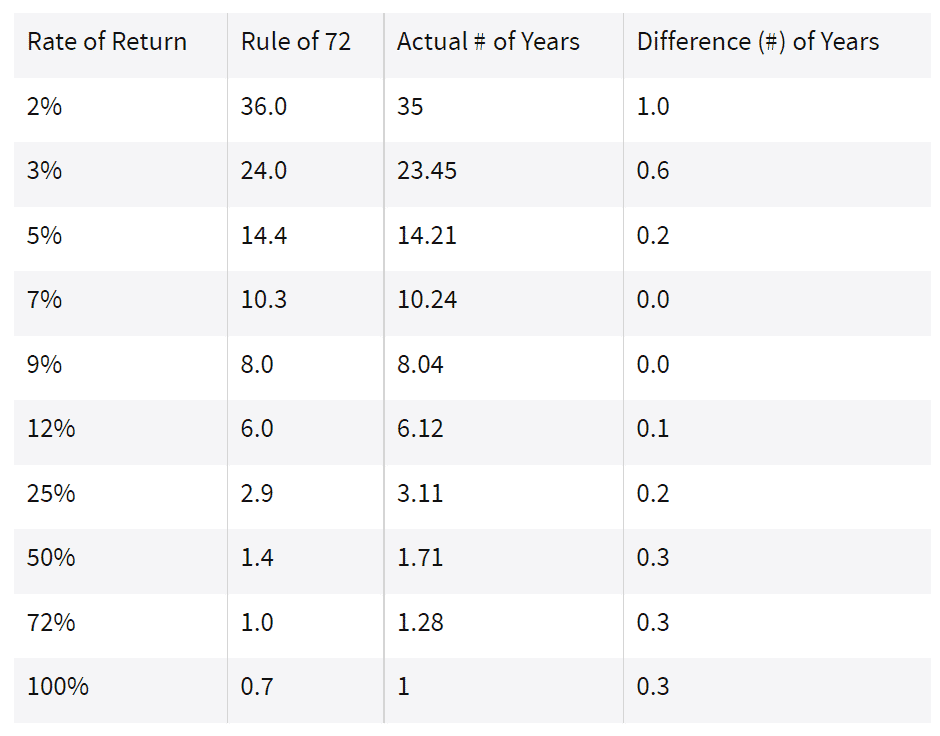Estimated reading time: 3 minutes
I know it might sound very mundane. Think about what is the rule of 72 in finance I am talking about. Astonishingly I have been investing for quite some time but I recently got to know about the rule of 72. The rule of 72 is a simple way to determine how long an investment will take to double. Given that we have a fixed annual rate of interest. What we need to do is, we need to divide 72 by the annual rate of return. The result whatever comes will be the number of years in which the investment is going to be double.
How the rule of 72 in finance works
The rule of 72 states that $1 invested at an annual fixed interest rate of 10% would take 7.2 years (72/10 = 7.2) to grow to $2. The rule of 72 in finance is reasonably accurate for low rates of return. The chart below compares the numbers given by the rule of 72 and the actual number of years it takes an investment to double.

How to adjust the rule of 72 for higher accuracy
The rule of 72 will give you more accurate results if it is adjusted. This effectively would transform the rule of 72 into the rule of 69.3
Many high-net-worth investors also prefer the rule of 69.3 instead of the rule of 72. For maximum accuracy in the case of compounding interest, we all have to use the rule of 69.3. It works the same way. Just instead of 72, we have to use the number 69.3.
At this time we all know little or more about investments. I am sure most of us have a certain amount of money invested. Either in the share market or in cryptocurrency. No matter what the case, we ought to know about the rule of 72 in finance so that we can use this to our advantage. Whenever we need to calculate the return and in how much time it is going to double, we could just do a division and then know the result. This not only helps in getting the number of years right, but this also helps in getting our mindset right to not invest in FDs anymore.
Here are some of our other interesting articles:

I am a 33-year-old gentleman from a lower-middle-class family hailing from a small village Narasinghpur in Cuttack, Odisha, INDIA. I have a post-graduate degree in M.Tech from BITS Pilani. I started blogging back in June 2014. You can check out my journey and all that I have learnt all these years on my website.



